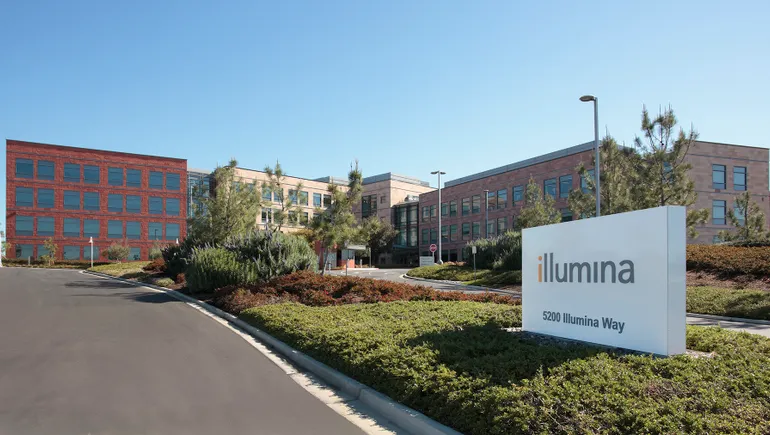Dive Brief:
- Illumina may avoid an approximately 432 million euro fine related to its Grail takeover after an adviser to the Court of Justice of the European Union (ECJ) ruled in its favor Thursday.
- The Advocate General’s non-binding opinion states that the European Commission lacked the power to rule on Illumina’s $8 billion acquisition of the cancer screening test developer Grail. An Illumina spokesperson said in an emailed statement that the opinion is non-binding but added that there would be no basis for the EC to issue a fine if the company wins its appeal.
- TD Cowen analysts said in a note to investors that the ECJ follows the Advocate General’s counsel “in the majority of cases.” Illumina still plans to divest Grail.
Dive Insight:
The Commission primarily examines mergers with “an EU dimension” that reach certain revenue thresholds, called turnover thresholds. However, officials including Margrethe Vestager, the former Commissioner for Competition in the EU, questioned the focus on revenue in the wake of deals such as Facebook’s $19 billion Whatsapp takeover.
“Because these days, a company’s turnover doesn’t always reflect its importance in the market,” Vestager said in 2020. “In some industries, like the digital and pharmaceutical industries, competition in the future can strongly depend on new products or services that don’t yet have much in the way of sales.”
Grail’s revenue fell short of the threshold, but the Commission investigated the takeover using Article 22. The article allows EU countries to refer any deal that threatens to significantly affect competition within their borders for review by the Commission.
Multiple European countries asked the Commission to review the Illumina-Grail merger because “the combined entity could restrict access to or increase prices of next generation sequencers and reagents to the detriment of Grail’s rivals.” Illumina sued to block the Commission’s investigation. The General Court dismissed Illumina’s case but the sequencing company appealed the judgment.
In July, the Commission fined Illumina approximately 432 million euros, the maximum penalty allowed, for closing the deal without first gaining its approval.
Advocate General Nicholas Emiliou published an opinion on the appeal last week as part of the ECJ’s assessment of the case. Emiliou concluded that the ECJ should annul the Commission’s acceptance of the referrals to review the Grail merger. The Advocate General is recommending that the Commission pays the costs of the proceedings.
“Illumina agrees with the Advocate General that the European Commission’s assertion of jurisdiction over this merger was improper,” a company spokesperson wrote in an email. “Illumina looks forward to the decision of the European Court of Justice. Developments in this case will not delay the ongoing process of divesting Grail, with the goal of finalizing the divestment terms by the end of the second quarter of 2024.”
TD Cowen analysts wrote that “timing is now the key variable.” The ECJ may deliver its ruling after Illumina has finalized the divestment terms for Grail. In that scenario, the analysts said it’s likely Illumina will have to abide by the Commission’s demands to capitalize Grail to be “as viable and competitive” as it was before the merger.
Even so, Illumina could still benefit from a favorable ECJ ruling.

